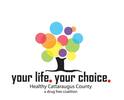Online Safety |
|
|
|
The Internet can be a great way to stay connected with people and to find information. However, there are some important things that you should know in terms of keeping safe online. Below we will discuss two major topics in terms of youth online activity and safety which includes Cyberbullying and Privacy Measures.
Cyberbullying
This is when someone harasses or tries to intimidate another person online.
https://www.ncpc.org/wp-content/uploads/2017/11/NCPC_Cyberbullying-TipSheet-TipsForTeens.pdf Protecting Your Privacy
There are a lot of people on the Internet that don’t always have the best of intentions. These people can be considered predators and can do harm by trying to solicit (try to you get you to do things) that you don’t want to do. This can be from a direct contact online or you may come across a website that has a disturbing pop-up. You may also receive an email from a stranger asking for help or trying to get you to do something. Or they may place a link in a message that you receive which could either expose you to disturbing content or that link may be a virus that intends to steal all of your person information from your computer or other device. But there are ways in which you can protect yourself.
https://staysafeonline.org/stay-safe-online/managing-your-privacy/privacy-tips-teens/ |
